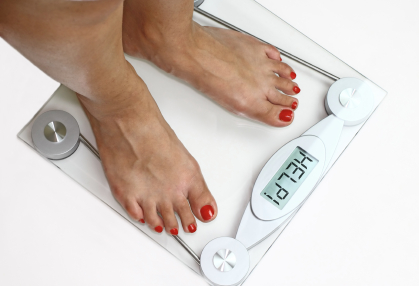The Myths About Losing Weight After 40
Want to lose weight after 40? There are some important things you need to know. First off, mindset is the most important thing. I’m 44 years old and quite honestly I forget my age from time to time. I refuse to buy into the fact that just because I’m over 40 I’m destined to gain weight. ANYONE can gain weight when they are eating too much and exercising too little!
A slower metabolism is the reason that is typically used for over 40 weight gain. While that is partially true, the research is pointing to lifestyle as the major culprit. The majority of people over 40 have increased responsibilities and more money to spend. The increase in responsibilities allows less time for physical activity or scheduled exercise. The increase in income allows them to afford to outsource many of their physical activities as well as eat out more often.
Good news! You do not have to accept this as your destiny!
Lose weight easily after 40 by following these simple steps!
1) Get a check up! See your doctor and get a physical. Have a full blood panel to screen things like your thyroid and hormone levels. If your doctor sees any imbalances that could affect your weight loss efforts, he or she may decide to prescribe medication. This will help you avoid a whole lot of unnecessary frustration! Do not skip this step or put it off. It’s that important!
2) Exercise Regularly! Research shows that 20 minutes of high intensity exercise can boost hormone levels in the body, resulting in a boost in metabolism. So, even though the metabolism can slow after 40, regular exercise can counter that.
Strength training helps build muscle, which burns more calories than fat. It’s recommended that people over 40 add strength training to their routine 2-3 times per week.
3) Reduce calories! To maintain your weight after 40 without lifestyle changes, reduce your caloric intake by 100 calories per day. If you want to lose or maintain your weight, it’s important to know how many calories you are eating daily. Keep a journal or subscribe to a free on line calorie counter like loseit. This will help you determine if you are creating enough of a deficit for weight loss and/or weight management.
It is possible to lose weight even if life’s current circumstances prevent you from increasing your activity level. But you REALLY want to pay close attention to your caloric intake. Opt for “eating in” more often and choose high volume meals that are lower in calories. My favorite light recipes come from Cooking Light magazine.
Please note it’s always easier to lose weight with a combination of regular exercise and a healthy eating plan. It can be very challenging to lose weight by reducing calories alone. Not impossible, but it’s more restrictive and fewer people have success with this plan.
4) It’s okay to enjoy happy hour! Mixed cocktails can pack a lot of calories. Beer and wine are usually the lowest. Factor liquid calories into your daily allowance. If you like to have a drink or two, then you may find you need to skip some other extras or increase exercise time while you are in weight loss mode.
The most important thing is to stop telling yourself it’s hard to lose weight after 40. Losing weight takes effort no matter what age you are. Tell yourself you CAN lose weight after 4o, follow these steps, and you will succeed!
Please let me know if you have any questions or if you have a “fit after 40” secret you’d like to share. I love to hear from you!
Here’s to being fit after 40!
Jennifer



